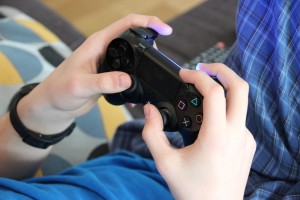 Recent research has uncovered some surprising findings in the fields of physical and mental health.
Recent research has uncovered some surprising findings in the fields of physical and mental health.
In stark contrast to what experts have been telling us for decades, Daphne Bavelier, a research professor in the University of Rochester’s Brain and Cognitive Sciences Department, has found that some video game play actually has a positive impact on our mental capacities and emotional well-being.
Bavelier reported, “Our research shows that a regular, moderate, daily dose of an action video game has a beneficial effect in terms of how well you see (like reading the fine print on prescription bottles), how fast you can react (as when you need to hit the brakes when you drive), how well you perform mental rotation (as when you read a map to navigate) or how swiftly you can switch from one task to another.”
In other words, Bavelier’s studies indicate that those who regularly play video games are able to make quicker decisions with equal accuracy to slower, non-gamers.
Researchers have also discovered that video games can help patients deal with chronic illness, overcome anxiety, and manage pain — perhaps one of the reasons over 200 million copies of Minecraft have been sold as of May 2020.
Of course, Bavelier has made it clear that all video games are not equal when it comes to their potential benefits.
“One of the big lessons we learned from our work is that different video games have a different impact on the brain, so we cannot talk about the impact of video games in general,” Bavelier said. She suggested that the most beneficial video games are those with high levels of intense action.
Bavelier also stressed the importance of moderation, saying that about 30 to 40 minutes of play per day would be an appropriate amount.
Physical activity is naturally still considered one of the best ways to boost mental and emotional health. Another study showed that 25.1% of students who exercised six to seven days a week felt sad for two weeks or more over the course of one year, while 35.7% of students who exercised one day or less per week felt sad for the same length of time.
Bavelier’s message is not that video games alone can boost a person’s mental and emotional health, but rather that video game play can be incorporated into a person’s healthy lifestyle and provide an added boost.



No Comment